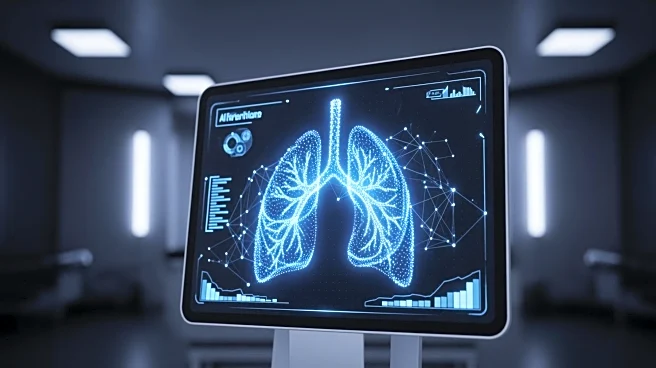What's Happening?
The UK's National Institute for Health and Care Research (NIHR) has announced funding for 17 health technology projects aimed at improving mental healthcare for young people. These projects, sharing a £1.5 million ($2 million) funding pot, focus on reducing waiting times and enhancing support for children with mental health needs. The initiatives include AI and digital tools to identify early signs of autism, predict necessary support, and integrate physical and mental health care. Recent NHS data indicates that nearly 830,000 individuals under 18 accessed community mental health services in the past year, with 250,000 awaiting initial contact after referral. The NIHR aims to address these delays, which can exacerbate conditions and increase healthcare costs.
Why It's Important?
The funding initiative by NIHR is crucial in addressing the mental health crisis among young people in the UK. Long waiting times for mental health services can worsen conditions, disrupt education, and increase family stress. By investing in technology-driven solutions, the NIHR seeks to create a more responsive and equitable system for mental health care. This move is expected to empower families, support clinicians, and reduce healthcare costs. The projects aim to provide timely, personalized care, which is essential for children with mental health challenges and neurodevelopmental conditions like ADHD and autism.
What's Next?
The UK government has outlined a 10-year plan for the NHS, which includes investing £120 million in mental health emergency departments, recruiting 8,500 mental health professionals, and establishing community hubs with mental health support staff. These efforts are part of a broader strategy to improve mental health services and accessibility. The NIHR's funding for technology projects is a step towards achieving these goals, with the potential to significantly impact the mental health landscape for young people in the UK.
Beyond the Headlines
The integration of AI and digital tools in mental health care represents a shift towards more innovative and efficient solutions. These technologies can help identify mental health issues early, prioritize care based on severity, and provide personalized support. The ethical implications of using AI in healthcare, such as data privacy and accuracy, will need careful consideration as these projects develop.









